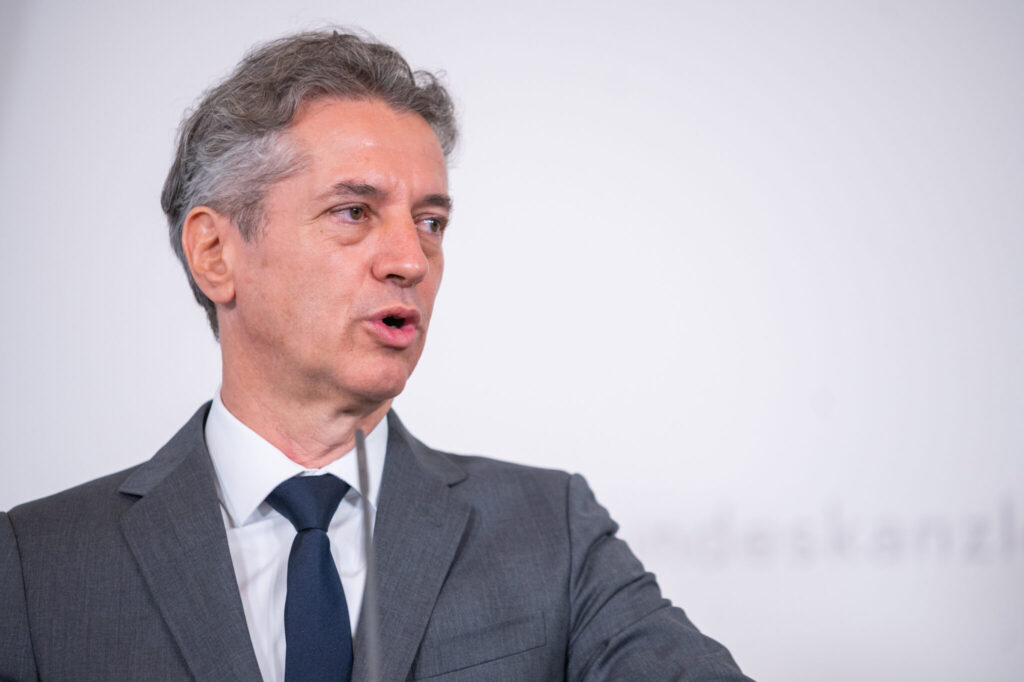On Monday, two witnesses testified before the National Assembly’s Commission of Inquiry for determining the potential political responsibility of holders of public office with regard to the alleged inadmissible political interference in the work of the Police, which in a normal country would take out any leader, no matter how popular. First came the testimony of Tatjana Bobnar, former Minister of the Interior, and then that of Boštjan Lindav, former Acting Director-General of the Police. They both directly accused the Prime Minister of crimes of interference in police staffing and brutal interference in the functioning of the police. However, today, the media instead decided to focus on the alleged rigged tenders at the Motorway Company of the Republic of Slovenia – DARS. The Prime Minister is safe (for the time being), as no suitable replacement for the Slovenian Emperor Nero has yet been found.
Just like the former Minister, Boštjan Lindav pointed out in his introduction that he had not received the invitation to Monday’s meeting of the Commission of Inquiry, but his lawyer had – but he had decided to attend anyway. He said that they wanted to dismiss him from the post of Director of the Criminal Police Directorate already during the Šarec government, when Boštjan Poklukar was the Minister of the Interior, a post he had already held in the 2018-2020 mandate, which the then-Director-General of the Police, Tatjana Bobnar, did not agree with.
Regarding the report on political pressure on the work of the police, which he sent to Prime Minister Golob last December, Lindav stressed that he still stands behind every word in the report “with all my integrity and expertise” and that he expects the commission, in the process of investigating the alleged irregularities, to “talk to all the people mentioned in this report, including Miloš Milović, as well as the people who were invited to the previous sessions of the parliamentary commission.”
Calls from Golob’s office
In his report, Lindav also described telephone calls with the Prime Minister’s Chief of Staff, Petra Škofic. He also made an official note of this call, which contains very precise indications of “Petra Škofic’s wishes and expectations for my attendance at a coffee meeting with Prime Minister Robert Golob,” he explained, among other things. “There is no Prime Minister who could convince me to fire a man who is working legally, professionally and honestly, just because someone decided he had to be let go. That would be unacceptable to me as a human being and even more so as the Acting Director-General of Police,” he said.
Milović tried to get his man employed in the police
Lindav also mentioned a call from the notorious Miloš Milović regarding the employment of a former police officer, for whom the police had issued a negative opinion. “The former Interior Minister (Bobnar) made it clear that such a recruitment would constitute personnel corruption, and we finished the story there,” he told the commission.
He found it strange that Milović had informed him about the choice of the controversial Robert Kešpert to head the Prime Minister’s security service. When he had the opportunity to meet Kešpert in person in September, the latter raised the unusual topic of persuading Lindav that the special police unit should be placed directly under the Director-General of Police and not in the Special Police Unit. When Lindav presented his arguments to the contrary, and to that, Kešpert replied that he should think again about whether this was really the best decision.
Later, Lindav received a call on this very subject from the State Secretary for National and International Security, Andrej Benedejčič, asking him about the organisational set-up of the special unit, which he took to mean “if you are not diligent, we will just arrest you.” As he pointed out, he found such thinking childish and contradictory to the rule of law and the sound logic of police work. Darko Muženič, Director of the National Bureau of Investigation (NPU), is also said to have expressed to Lindav his wish that people should be dismissed from the bureau without any legal basis. “There is probably no worse political pressure than the desire for staffing, dismissals and revanchism,” Lindav assessed.
The response of the media was quite predictable
On Monday, Bobnar and Lindav literally “dismissed” the Prime Minister. After such serious accusations, any – however popular – leader of any other European Union country would resign. But Golob will not resign, because he knows that the parallel machinery of the deep state has no replacement for him for the time being, which in turn means that the media will not publicise the affair to the extent it should. In practice, this means that the explosive testimony barely appeared as a fringe news item on the two major television channels, while the media outlet 24ur was dominated by the alleged bribery scandal at the Motorway Company of the Republic of Slovenia, where the deep state is settling scores with the New Slovenia party (Nova Slovenija – NSi) now that there is no real use for them anymore, while the MMC web portal filled the main news with PR pieces in favour of Hamas “fighters”, and the testimony of Bobnar and Lindav was buried deep under the main page. Even the pro-government Siol media outlet did not put the news on the front page.
I. K.


